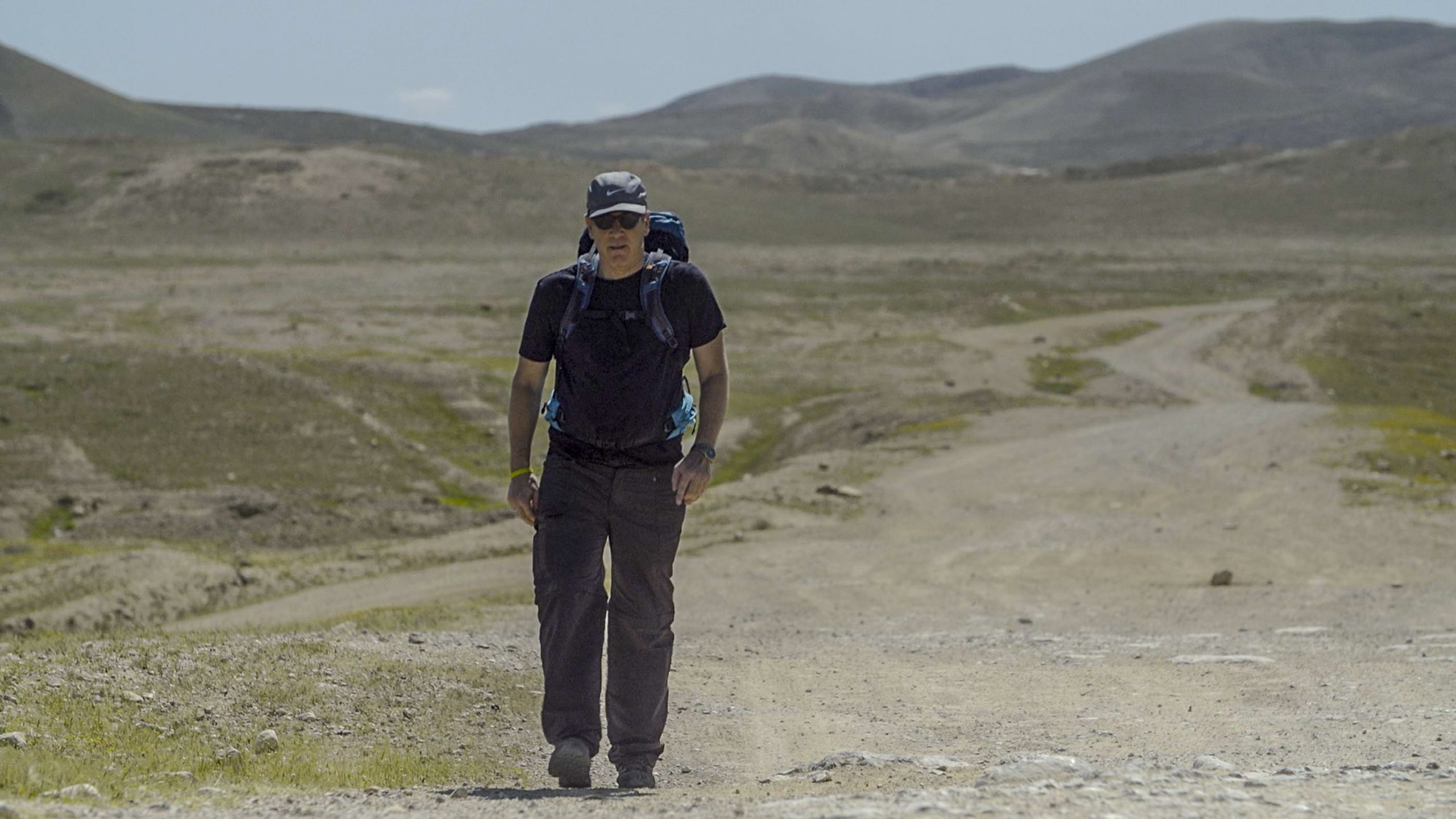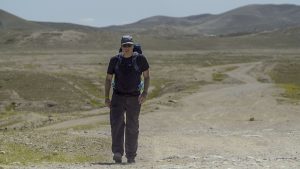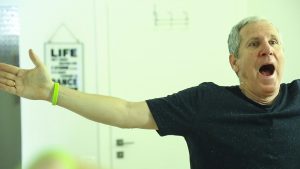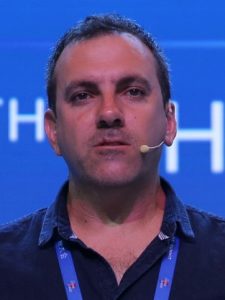Parkinson’s Patient Brings Awareness to Mannitol Supplement in New Documentary

Dany Vesely on a hike in Isreal. (Photo by xx)
A documentary premiering July 29 on Israel’s satellite TV service provider, yes, highlights what one Parkinson’s disease patient was able to achieve when he set out to advocate for himself and other patients.
In collaboration with Nisan Katz and Nir Kafri Productions, “My Disease Our Revolution” follows Dany Vesely, 63, as he champions a supplement that he says helped him combat his Parkinson’s.
At the center of the story is an over-the-counter sweetener called mannitol. Due to the efforts of Vesely and others, the supplement now is being tested in Parkinson’s patients in a small randomized, controlled Phase 2a trial. But the real story is not necessarily in the trial or its eventual results; it’s how it got there in the first place.
The documentary crew followed Vesely for the past two years, filming him as he and his business partner gained support for a new venture, CliniCrowd, which is exploring the idea of using patient-reported data to test the viability of readily available supplements.
These are compounds that have been deemed safe by the U.S. Food and Drug Administration (FDA) and have shown promise in research for some diseases, but for which companies have little financial incentive to put through expensive clinical trials.
“Bringing back the power to the patient, it can be a change; it can be a revolution,” filmmaker Katz told Parkinson’s News Today in a video interview.
In the documentary, Vesely and Sagit Weiss, a physician and immunologist and Parkinson’s patient, both said mannitol helped stabilize their symptoms after consistently taking the water-soluble supplement, which also is used as a healthier alternative to sugar. Vesely’s success with mannitol was the inspiration to form CliniCrowd and let patients find out for themselves.
“We couldn’t stay calm to the fact that 10 million patients around the world will not have the chance to know about it,” Vesely said in a video interview.
From diagnosis to startup
Vesely, diagnosed with Parkinson’s in 2013, didn’t know what mannitol was until his friend had a chance meeting with a PhD researcher who had been studying small molecules that could inhibit a protein responsible for the disease.
That researcher’s name was Daniel Segal, PhD, a geneticist at Tel Aviv University. Segal published a paper (incidentally, the same year Vesely was diagnosed), which suggested that mannitol could “promote [alpha]-synuclein clearance in the cell bodies” as seen in fruit fly and mouse models. For an unknown reason, alpha-synuclein forms toxic clumps that impair the production of dopamine, leading to Parkinson’s.
Read more about the science behind mannitol and its potential in Parkinson’s here.
“I think it will be interesting for Parkinson’s patients not only about the mannitol,” Katz said. “I think it’s also about the way Dany copes and fights the disease.”
Parkinson’s is a progressive, visible disease. It causes involuntary tremors, slowed movement, rigidity or stiffness, and impaired balance. Less visible are sleep problems, constipation, slurred speech, and mood disorders.
Katz opens the film with Vesely slowly getting out of bed, shuffling to the bathroom to brush his teeth. The documentary also shows him riding his stationary bicycle and working on his balance in a dance class.
“A lot of people are getting Parkinson’s and becoming very lonely and they’re inside themselves, and they are crying, ‘why did we get Parkinson’s’?” Amir Sadeh, a friend of Vesely’s and CEO and co-founder of CliniCrowd, who also started taking mannitol as a preventive measure, said in a video interview. “Not Dany, he’s a fighter. ‘With my Parkinson’s, I’m going to help the world.’”
Sadeh and Vesely, along with three others, founded CliniCrowd in 2018, with the expectation of using the “wisdom of the crowd” to gather data on patients’ experiences with mannitol. Vesely is an active chairman of the board; however, he works full time as a partner at the security company Sdema Group.
They didn’t establish a business model early on because, as Sadeh said, “we started this venture to make the world a better place.” As the company grew, however, one option did emerge.
CliniCrowd is working with some food supplement companies to secure funding by doing research into their products, according to Sadeh. The over-the-counter products one might pick up at a pharmacy for allergies, a cold or the flu can’t claim anything about efficacy. But they can show data that might support such claims. Sadeh said that’s where CliniCrowd comes in, offering a platform for companies to gather information about patient experiences.
Still, the project remains mostly self-funded.
Using the ‘wisdom of the crowd’
The problem with mannitol, as the documentary explores, is that it’s an over-the-counter supplement labeled as safe by health authorities around the world. Pharmaceutical companies have little incentive to invest in a clinical trial, Sadeh said. A 2018 study in JAMA Internal Medicine puts the average cost of a trial at $19 million.
In an interview in the documentary, Segal says having more doctors prescribe the supplement is a Catch-22 situation. They won’t give mannitol to patients because there’s no clinical trial, but no one would fund such a study.
“We’re not against the pharma company; we’re not against doctors. Because this system is usually about economic and profit, it’s understandable to me,” Katz said. “Sometimes, in some situations, it can be bad for patients.”
Katz said he interviewed a CEO of a big pharmaceutical company but decided to cut it. The CEO said what Katz already knew: There wasn’t an economic incentive. Instead, he opted to use an anonymous interview with a pharmaceutical company employee.
Since CliniCrowd launched, 2,000 Parkinson’s patients from 54 different countries have participated, 1,076 of whom they now have follow-up data, according to an email from Sadeh.
In the future, they are hoping to be able to make use of wearable devices that can “objectively track medical conditions” and avoid potential selection bias — that is, people with positive results being the only ones to report their outcomes. He added that the data analytics platform they use also accounts for potential statistical pitfalls.
“You will make your own decision to take it or not take it, but at the end of the day, we really want to get the FDA approval and European drug authority,” Sadeh said. “Today everyone can buy it. It’s a safe solution.”
The revolution has just begun
Hadassah Medical Center is conducting a Phase 2 trial testing mannitol for Parkinson’s under the supervision of neurologist David Arkadir. No corporation is funding this study; rather, the Ministry of Health of Israel has been providing grants for substances that can’t be patented. Mannitol was one of them.
In addition to mannitol, CliniCrowd is looking into how cinnamon extract potentially could prevent Alzheimer’s or help existing patients with user-reported outcomes.
Katz, 46, had wanted to make movies since he was a child. In his 20-year career as a documentarian, he’s covered an Israeli community formed in India, the conflict between Israel and Palestine, and stories of immigrants playing soccer around the world.
But for this documentary, Katz said, “I can really believe I can make a change and impact millions of people.”
Vesely had a chance to see the documentary at a private screening earlier this month. It’s currently available on Vimeo’s on-demand service. He hates to see himself on screen, but it was well worth it for him.
“I know it served the mission, that it will inspire other patients and spread the notion about mannitol, about recruiting the wisdom of the crowd to the conservative healthcare,” Vesely said.









